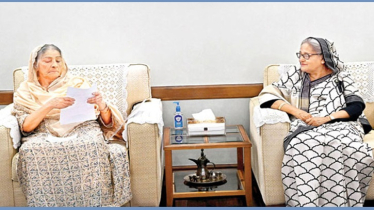
Germany has been one of the top destinations for higher studies for years now. Even before the country abolished all forms of tuition fees from their public universities, the country consistently ranked in the top quarter for global study destinations. With exemplary facilities, global education, and secured career options after graduation, Germany sounds too good to be students dreaming of studying abroad. Let’s find out how to study for free in Germany.
Steps to Study in Germany for Free in Graduate, Post-graduate Programs
The steps for applying for bachelor's, master’s, and Ph.D. are more or the same for all German universities. However, the number of courses offered in English grossly differs degree-wise. Generally, there are more English taught masters and Ph.D. courses compared to bachelors.
If you want to pursue a degree in German-taught courses, you will have to complete at least 500 hours of German language classes or at least an A2 level of German certification. Now let’s look at the step by step procedure for studying in Germany.
Selecting Course for Bachelor, Masters or PhD
This is the first step to follow for any prospective foreign student wishing to study in Germany. The course or the subject will determine different aspects down the line. For example, almost all the public universities in Germany are free of tuition costs, but some still charge a nominal tuition fee for certain courses.
Again, not all courses are available in English. In which case students will have to first gain German proficiency to pursue the degree.
The best way to select the course is to use The German Academic Exchange Service (https://www.daad.de/en/) DAAD. This is the most comprehensive repository consisting of over 17,000 courses in every German University.
Choosing the Tution-free Greman University
Once you have selected the course for the subject, you need to move to the next step, which is university selection. The DAAD.de website is the best way to search for the university using the relevant keywords like degree name and stream of education of your course.
Depending on the degree level, you will find courses either taught in English or German.
Qualifications
For undergraduates, Germany doesn’t require any standardized entrance exam qualification anymore. The results of the secondary and higher secondary level will be used to determine the acceptance.
For students wishing to pursue a German-taught course, they will have to qualify for the DSH Language Test (https://en.dshgermany.com/info/#dsh-generally/) which is the most commonly used language proficiency test in Germany.
Postgraduate students can submit GRE or GMAT scores as proof of qualification. Ph.D. pursuers will require copies of their relevant research and thesis to be considered for acceptance.
These are just the general requirements for the application itself. There are other supporting documents that are standard for any foreign university application as well as the steps of the application itself.
Blocked Account
Even though tuition in Germany is free, the cost of living isn’t. Germany is one of the more expensive countries in the world. The high cost of lifestyle doesn’t spare the students as well.
The German government wants foreign students to pursue their higher studies with full diligence. As a result, students are required to show that they can support themselves for one whole year before applying for the German Visa.
Students need to show that they have at least 10,236 Euros or near about 10,00000 BDT in a German blocked bank account from which they can draw the minimum 856 Euro or 83,260 BDT per month as living costs (1 Euro = 97.23 BDT).
The blocked account can be bypassed if someone legally residing in Germany and holds a job sponsors the duration of stay.
Now you might be thinking that how is it actually free if a substantial amount needs to be deposited in a blocked account?
Technically there is no cost involved with the studies so it is free. And while the blocked account is there as a means of living,
students don’t necessarily have to use it.
DAAD offers several scholarship opportunities for both English and German-taught courses. The stipend received from the scholarships is more than enough to sustain in Germany. In addition to the scholarships, there are small part-time opportunities which the students can avail themselves of easily.
Application
Once you’ve sorted out the financials and the requirements, it's time to apply for the university itself. There are mainly two semesters in Germany - summer and winter. The summer semester starts around March - April and the winter semester starts around September – October.
Generally, the winter semester tends to have more choices regarding subjects and courses.
The admission procedure is generally reserved by the admission office of the respective university. As a result, students need to consult and follow the individual application process once the admission portal opens. There is a combined application website called Uni Assist (https://www.uni-assist.de/en/) run by DAAD. However, not all universities are listed here.
Students should prepare in a way that they can apply a week before the deadline. This will ensure that there aren’t any last moment rush or corrections to be made.
Applying for the Visa
Applying for the visa should be done after receiving the acceptance letter from the university. This is one of the trickier aspects of the entire study abroad process. Currently, there is a huge backlog of visa applicants in Bangladesh. Most of these are students wishing to pursue higher studies in Germany.
The first step is to book an appointment (https://service2.diplo.de/rktermin/extern/choose_realmList.do?
After the successful appointment, prospective students need to check the checklist for the student visa. It’s a relatively long list and entails several personal and financial information documents a student needs to collect before appearing for the appointment.
Final Words
Germany has been a global leader in the engineering and automotive industries. With a large economy as theirs, there is always a steady need for skilled labor. Bangladeshi students can utilize the opportunity to study free in Germany. In addition to access to a world-class education at virtually no cost, they will also get access to an assured career and comfortable life abroad.
MS









